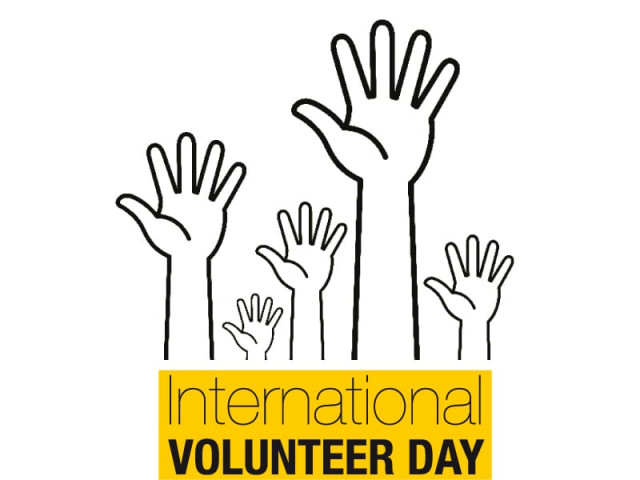Giving back: Paying it forward – for free
Pakistan struggles with inducting more volunteers due to lack of transparency.

Pakistan, with the highest rates of volunteerism and charity, struggles
with inducting more volunteers due to lack of transparency.
Zarina Rehmatullah, 65, wonders why people prefer piling up more money over volunteering. A committed volunteer, she has been working to serve her community for the last 18 years. Despite having a Master’s degree in Education, she labels drug packages, bottles in particular, as a volunteer at the Aga Khan University Hospital pharmacy.
“I have led my life as a single woman and have mostly worked as a volunteer. I will continue to serve communities till my last breath.”
Dr Nida Kirmani, who teaches sociology at Lahore University of Management Sciences (LUMS), says Pakistanis should be pleased at the fact that the country has one of the highest rates of volunteerism and charity. These concepts need to be fostered in our younger generations, who are increasingly being overtaken by consumerism, she maintains.
Dr Kirmani also believes that volunteerism, when done properly, has a great potential in building community bonds, which can foster understanding and peace.

When the Christian community was targeted in Joseph Colony – a Christian neighbourhood in Lahore – in an arson attack in March this year, she along with students from LUMS visited the neighbourhood to distribute relief goods and spent time with children. “It must have helped the students realise that there were people in their own city that were struggling with poverty and discrimination. Perhaps this will help plant the seeds of understanding and social change later on,” she hopes.
More of this type of volunteerism should be taking place, particularly as we see a rise in sectarian conflict across the country. “Such efforts remind us of our common humanity, and in the end, this is the only thing that can save us as a society.”
Volunteerism in general has an important impact on building a sense of community and trust among people. With this spirit, scores of young people are volunteering in different departments at Aga Khan University.
“I want to give back to society. I am volunteering in community health and nursing research for the past few months and also pursuing an MBA,” says Umar Malik, 25, who has recently graduated from the US.
Similarly, Ameena Shaikh, another 25 year old, is working in AKU’s finance and payroll department for the past two months and believes that “volunteer work gives motivational support”.
AKU’s Volunteer Services Coordinator Amyna Lalji tells The Express Tribune that people of all ages volunteer and the purpose of the programme is to groom the youth so that they could professionally grow in their fields. This year, they had 413 volunteers and since 1987, they have had 7,500 volunteers, she said. Around 54% of the volunteers are women and 46% are men.
Businessmen like Faisal Kapadia are also an inspiration. He spearheaded relief and social work when the super flood hit Sindh. Him along with his three friends were the first people to reach the affected areas with relief goods after collecting Rs600,000 in donations.
“We received an overwhelming response and appreciation when we uploaded pictures on social media,” he recalls, “[After which] we formally started our organisation SA Relief in August 2010 and now we have the workforce of 120 youths.”
Unfortunately, at times, it is difficult to mobilise the youth because of the lack of transparency in managing donations and funds. “With regards to our relief work, we revealed everything on social media [to ensure transparency], he adds.
According to the Pakistan Telecommunication Authority, around 30 million people are social media users but we are not taking advantage of its high density to promote volunteerism, Kapadia points out. “Pakistan has given us so much to us, so we should give something back also.”
Published in The Express Tribune, December 5th, 2013.



















COMMENTS
Comments are moderated and generally will be posted if they are on-topic and not abusive.
For more information, please see our Comments FAQ